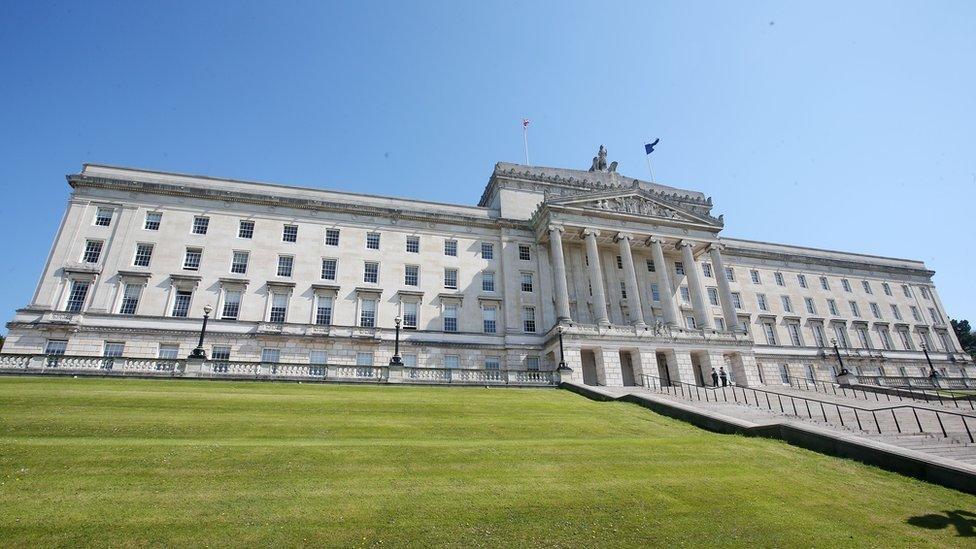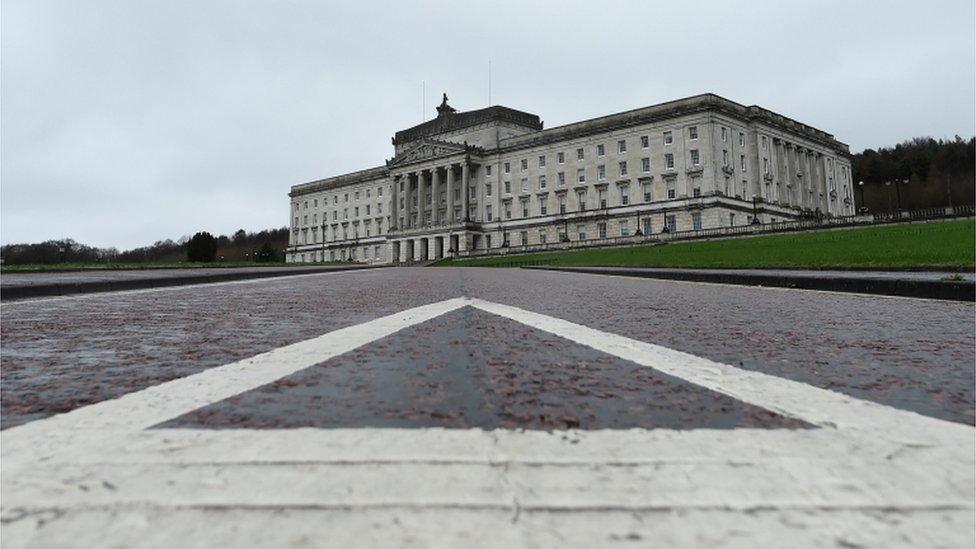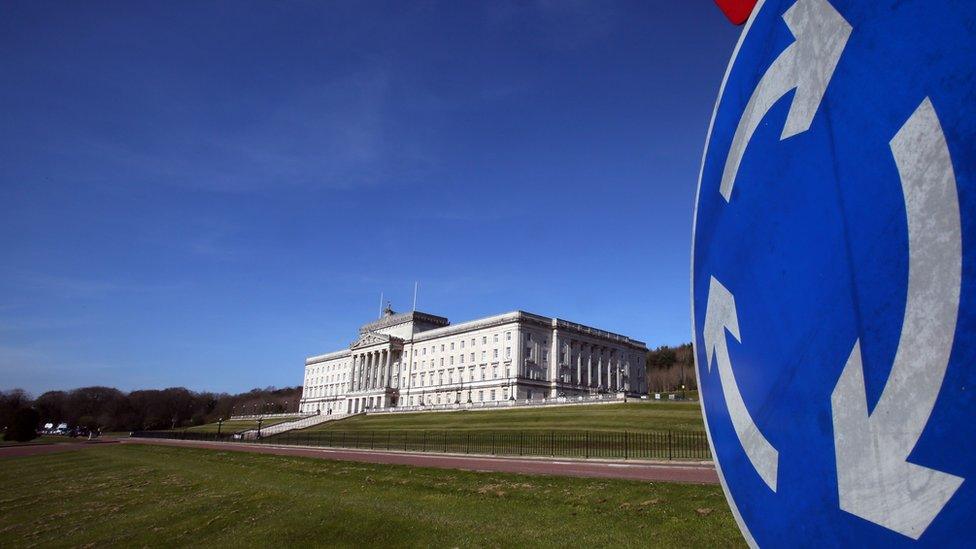NI Executive: 'Some income tax powers could be devolved'
- Published

The only significant revenue raising undertaken by Stormont is regional rates
Some income tax powers could be devolved to Stormont, an independent inquiry has suggested.
The Fiscal Commission has been examining the Northern Ireland Executive's responsibility for tax and spending.
It says that duties on alcohol, tobacco, fuel and air travel are also possible candidates for devolution.
It will now look at those taxes in greater detail before making final recommendations next year.
Currently the only significant revenue raising undertaken by Stormont is regional rates, a property tax paid by households and businesses.
Since 2015, Northern Ireland has had the power to cut corporation tax, albeit the Treasury first needs to be satisfied the executive's finances are on a sustainable footing.
The commission reveals that as recently as September this year, the chief secretary to the Treasury wrote to Stormont's finance minister to say that test had not been met.
The letter added: "Before we start looking at the merits of increasing the fiscal powers available to the assembly, the executive needs both to devise a strategy for securing its fiscal sustainability and to execute it."
The commission says this scepticism means the Treasury "did not engage as fully with our commission as they did with similar commissions looking at fiscal devolution for Scotland and Wales".
During its work, the commission also found "virtually everyone we spoke to also raised the issue of the political capacity of the NI Executive".
It said concerns were expressed over its stability, as well as its capacity to reach coherent and consistent policy decisions.
Some people saw this as a strong argument against further devolution, but others felt that devolving additional tax powers could help to improve capacity and stability.
The commission said: "It is not for us to make judgments on these essentially political issues, but we would bring to the attention of Northern Ireland's politicians the concerns that we encountered."

Taxes being considered for devolution
Income tax
Apprenticeship levy (if income tax is devolved)
Fuel duty
Alcohol and tobacco duties
Stamp duty land tax
Air passenger duty
Landfill tax

Until now, Northern Ireland was the only devolved region not to have conducted a comprehensive taxation review.
In Wales, the Holtham Commission reported in 2010 and in Scotland, the 2014 Smith Commission led to the devolution of some income tax powers.
'More volatile budget'
The Fiscal Commission chair, Paul Johnson, said devolving tax powers presented opportunities like "being able to spur economic activity, make different choices, or raise more money".
However, he cautioned that ministers would also have to be clear about the risks.
Collecting taxes locally would mean a corresponding cut in the block grant - the funding provided by the UK government.
"If taxes are devolved to the NI Executive then their budget will, in part, be determined by how much revenue those taxes raise," Mr Johnson said.
"This could well lead to a more volatile budget.
"If, for example, income tax is devolved and the income tax base grows more slowly in Northern Ireland than expected, or compared with the rest of the UK, then this could lead to a loss of revenue."
The partial devolution of income tax to Scotland means medium and higher earners pay more than they do in the rest of the UK.
However, that has not increased the Scottish government's spending power, relative to no devolution, because Scottish incomes have risen more slowly relative to the UK.
The finance minister, Conor Murphy, has welcomed the report saying more tax powers could enhance local democracy and create more options for funding public services.
"I also recognise that more thought needs to be given to how greater local control over taxes would operate in practice," he added.
"The commission's final report will provide a rigorous evidence base for an incoming executive to consider additional powers."
- Published12 March 2021

- Published2 October 2021
